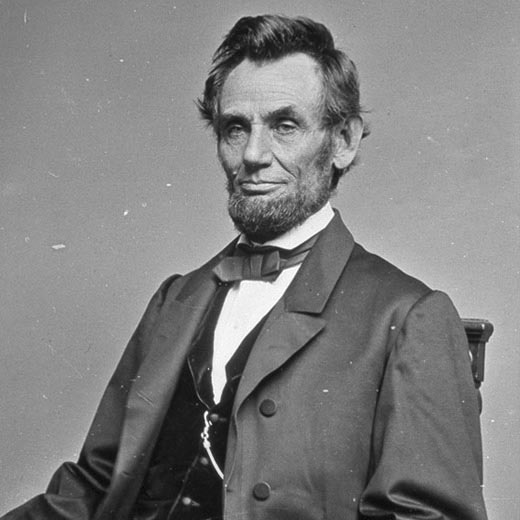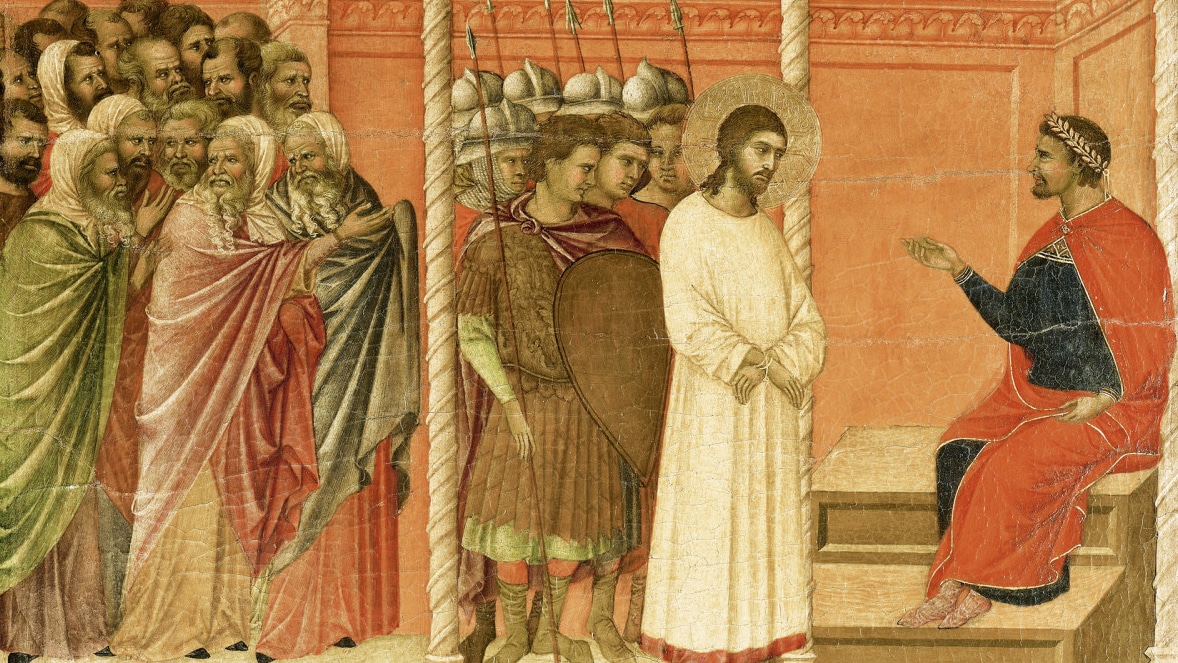One day in 1863, during the height of the Civil War, President Abraham Lincoln was making one his frequent trips to a hospital for soldiers wounded in battle. As he walked from ward to ward, he offered cheerful and sympathetic words to all the men he saw; the fact that the President of the United States was willing to come spend time with them was a source of great encouragement to the suffering soldiers. Lincoln came to the bed of a young man from Vermont who was mortally wounded, and taking the hand of the dying boy in his own, he asked if there was anything he could do for him. “Yes, sir,” the young soldier answered; “would you write to my mother for me?” “That I will,” Lincoln agreed, and he took paper and pen from one of his aides, sat down beside the cot, and wrote down the words the boy dictated. When he finished, the president said, “I will mail this as soon as I get back to my office. Now, is there anything else I can do for you?” The boy looked at his commander-in-chief; he was almost afraid to ask, but something in Lincoln’s expression gave him courage, so he said, “Yes, sir. Would you stay with me? I want to hold onto your hand.” Lincoln’s sensitive heart couldn’t resist that simple request. Over the objection of his aides, who told him he needed to return to the White House, he sat down, took hold of the young soldier’s hand, and patiently waited for two hours until the boy breathed his last. Then Lincoln quietly folded the boy’s hands over his breast and walked away in silence, with tears streaming down his face (Tonne, Stories for Sermons, Vol. 1, #188).
Having experienced much suffering and personal tragedy himself, Abraham Lincoln became known for his gentleness and compassion, and somehow a dying boy was able to recognize and place his trust in these qualities. This trust was well-founded, for the most important man in the world, the President of the United States, in the midst of a terrible war requiring all his energy and attention, was willing to wait with a single soldier until he took his final breath. This is a wonderful illustration of humility and love, and as true as this was of Abraham Lincoln, these qualities are infinitely more present in Christ our King. Jesus Christ, the Lord of all creation, is willing to know and relate to each one of us in a very intimate and personal way—and if we place all our trust in Him, both in life and in death, we will never be disappointed.
There are many different religions in the world, and most of them have at least some small kernel of truth, but only Christianity can claim to have a fully accurate and essential understanding of reality—for only Christianity teaches us that one day all creation will acknowledge Jesus as Lord and King. St. Paul speaks of how, at the end of time, Christ will conquer every worldly and spiritual authority and power, and destroy every enemy—including death itself. In fulfillment of His Father’s will, Jesus will be completely victorious—and this victory will include a very tender and merciful caring for His sheep. Our Lord will fulfill the words spoken through the prophet Ezekiel: “I will tend My sheep; I will rescue them from every place where they were scattered . . . the stray I will bring back, the injured I will bind up, the sick I will heal. . . .” As King, Jesus is deeply concerned with the personal well-being of each member of His flock, and as He emphasizes in the Gospel, we must play an important and ongoing role in the expression of His love. We will be judged, He says, on the basis of how we treat other people and whether or not we respond to their needs. One of two very different destinies awaits us, and for this reason, our acts of love, mercy, and compassion have eternal significance.
What does it mean for us in practical terms to say that Jesus is our King? We as Americans aren’t familiar with the experience of having a king, an unelected leader to whom we owe our total allegiance and service; nevertheless, I think it’s possible to point out five things that Jesus can expect of us if we are to be His subjects. First of all, we must have visible signs that we belong to His kingdom. We’d expect portraits or statues of earthly kings to be present throughout their kingdoms, including in the homes of their subjects, and we’d expect people to carry pictures or images of their king. So it must be with us. We should wear or carry religious items, such as scapulars, medals, or lapel pins, and our homes should be adorned with crucifixes and pictures or statues of Jesus and His Mother. Our family Bible should be given a prominent position, and other Catholic books and literature should be present; visitors to our homes should have no doubts about Who reigns there. Secondly, if Jesus is truly our King, we must obey His decrees and seek to serve Him. This means following His commandments and the teachings of His Church, asking ourselves what He would want us to do in any given situation, and being willing to go against popular opinion when it’s in conflict with our faith. After all, if Jesus will one day be our Judge, His commandments are infinitely more important than society’s values. Thirdly, a king’s subjects are required to pay their taxes to him. We do this by contributing to charity and to the support of our parish. In particular, tithing—or giving away 10% of our income—is a powerful way of expressing our allegiance to Christ and our trust in His ability to bless us. Fourthly, subjects of a king are expected to take pride in his successes and to do what they can to increase the glory of his reign. Therefore, we as Christians must constantly give praise to Jesus. This means thanking Him for all He has done for us personally and for humanity in general, coming together each weekend to worship and praise Him, and using the opportunities we’re given to tell others about Him. The more people who follow Jesus, and the more sincere and devout our worship, the more glory He receives. Lastly, faithful servants of a good and powerful king are expected and entitled to seek his help in all their difficulties. So it is with us. Our Lord wants to help and protect us in everything we do, no matter how large or small. We should constantly pray for His guidance and assistance, turn to Him in all our worries and troubles, and trust that He is always with us—especially in our times of difficulty, sorrow, or confusion.
If one of the greatest presidents in the history of the United States was willing to honor the simple request of a dying soldier, Jesus our King is infinitely more willing and able to help us in all our needs and to be present to us in a powerful way throughout our lives, at the moment of our death, and for all eternity. Our Lord is full of gentleness and compassion, and His love for us is so great He even died on the cross for our salvation. All He asks in return is that we allow Him to reign in our lives and that we enthrone Him in our hearts.








